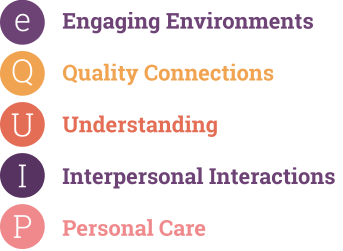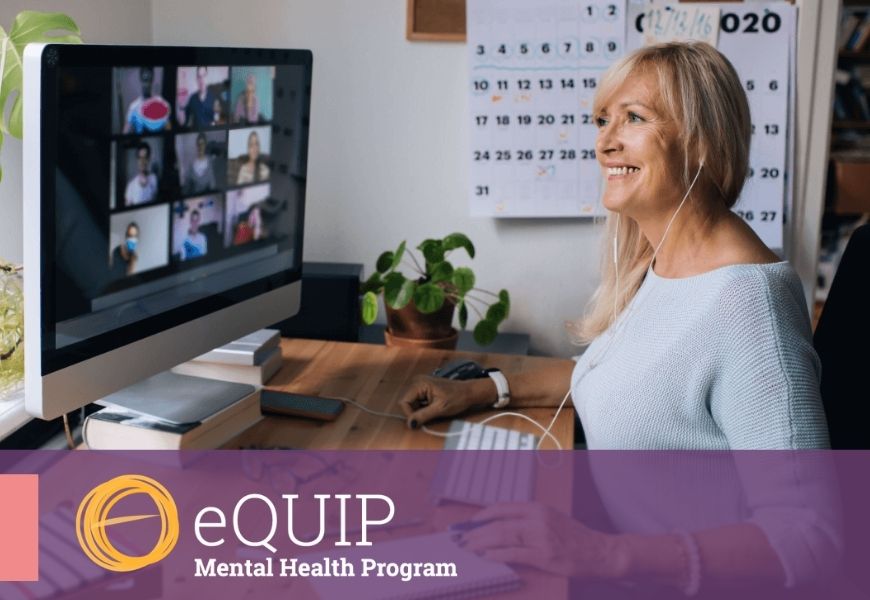Build healthy schools, staff, and students with E-Therapy’s eQUIP Mental Health Program for Schools.
by Jon Ebert
Mental health is THE spotlight topic when looking at kids and schools today. The prevailing data supports this increased focus on kids and the mental/emotional challenges they are facing. For those that are working to educate our children, having an awareness of the impact that mental health has on each of us as well as our students is especially important.As professional educators, how many of you have dealt with mental health related issues in your work with students?Consider for a moment that 20 percent of youth ages 13-18 will be impacted by a serious mental health condition at some point during the next year or that 50 percent of all lifetime mental illness symptoms begin during adolescence. Statistically speaking, this means every school, every grade level, and even every classroom will be impacted by mental health symptoms during the next 12 months.Do you feel prepared and capable to recognize students who may be experiencing mental health distress? Would you know how to respond and support students who may be dealing with mental health issues?
What does eQUIP mean?
To equip means “to give someone the skills needed to do a particular thing” or “to provide someone with objects that are needed for a particular activity or purpose”.E-Therapy has developed a dynamic training model called eQUIP Mental Health Program for Schools. The eQUIP Mental Health Online Therapy Program emphasize the importance of and need to EQUIP others, organized around this EQUIP acronym. It is our belief that to build healthy schools, healthy staff, and healthy students, we EQUIP others by focusing on the following:
“E” represents Engaging Environments
Engaging environments is a foundational element because a safe and secure environment is key to individual growth and realization of our full potential. Environments that meet our fundamental needs of safety allow us opportunities to engage, grow, and learn personally, socially, and academically. A school’s culture, sense of community, and ability to allow students to feel they are a part of something bigger than themselves are all key elements to student engagement. As students become more engaged, they begin to open themselves up to more personal connection.
“Q” represents Quality Connections
Quality connections provide a strong base to build relationships and establish trust and rapport. Students yearn for connection. For effective communication to occur, we focus on creative ways to establish this as part of your school and classroom. It is feelings of trust and acceptance that promote the ability for improved understanding.
“U” represents Understanding
This isn’t simply understanding who people are. We learn how to “see” what they are going through and how they interpret and are impacted by their environment. A vital element is understanding what a student experiencing mental health distress looks like and how this manifests in the classroom. As our understanding continually develops, so does our ability to employ supportive, therapeutic interpersonal interactions.
“I” represents Interpersonal Interactions
While we can’t control how others respond to us, we can control how we respond to them. Our interpersonal interactions have a direct impact on how those that are in our care react to us. Through our words and actions, we can either strengthen connection and rapport or we can damage it.We have control in what we choose to say and do. It is virtually impossible to help problem solve solutions when we unintentionally create obstacles for ourselves and those around us. A focus on supportive and therapeutic interactions allow us opportunities to partner, support, and “pour” into the students in our care. That said, we also have to intentionally set time aside for our own personal care and development. You simply can’t pour anything out of an empty cup.
“P” represents Personal Care and Development
This may be the most important element for teachers to keep in the front of their mind. Failing to consider one’s personal care will hinder your effectiveness to be there for your students, co-workers, and family. Those that exhaust themselves always trying to meet the needs of others will eventually have nothing left to give. This results in burn-out and declining physical and mental health. By taking time to prioritize your own needs, you make it possible to achieve your own goals as well as help others achieve theirs.Healthy schools, staff, and students are built on these pillars: Engaging environments, quality connections, understanding, interpersonal interactions, and personal care and development. An honest evaluation of each of these areas and how your school implements the principles associated with each is critical in order to meet the ever-changing needs our students present.You can do this, and E-Therapy is here to help! We provide a variety of Mental Health Online Therapy Program for schools. Let’s talk about how we can eQUIP you!

